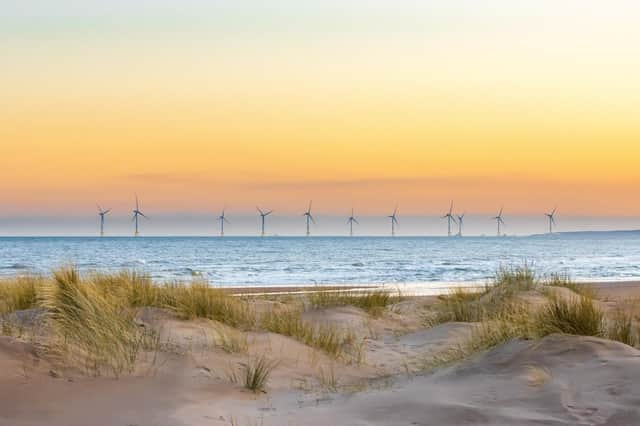Green energy conference: Discussions full of energy


Energy transition from oil and gas to renewables is already underway, but collaboration is key to Scotland becoming a world leader in the sector, delegates were told at The Scotsman’s Highlands and Islands Green Energy Conference.
More than 120 representatives from industry, academia and government attended the event at the Kingsmills Hotel in Inverness last Tuesday.
Advertisement
Hide AdAdvertisement
Hide AdThe conference featured headline sponsors E.ON and partners West of Orkney Windfarm and Highland Council. Exhibitors included Offshore Renewable Energy Catapult and Ceed.


Simon Duncan, director of B2B Solutions at E.ON, described the transition to green sustainable energy as “the most pressing issue of our time, in what has been described as the most defining moment in this fight against climate change”.
He added: “There is none of us that can do this alone, so only together do we have the power to make the difference and shape the most sustainable energy landscape that will benefit future generations to come.”
Scotland’s energy minister Gillian Martin MSP highlighted some of the region’s success stories and the significant opportunities arising from the transition to a net-zero energy system.
She explained: “Over the last 20 years, this part of Scotland has capitalised on its distinct natural resources to champion growth in onshore and offshore wind, as well as showing leadership in wave and tidal technology, renewable energy and the decarbonisation of heat and transport.
“The Highlands and Islands is a test-bed for net-zero innovation and is exemplary for private, public and community-led renewable developments.”
She pointed to the Beatrice Offshore Wind Farm in the Moray Firth, stating it has led the way in commercial-scale projects and future large-scale funding opportunities, most notably, ScotWind.
Martin also noted that the Scottish Government is dedicating £100m to support hydrogen production.
Advertisement
Hide AdAdvertisement
Hide Ad“We know from speaking to partners in Europe that they want to see Scotland as being a huge producer of green hydrogen and that market is there and is growing by the day, we need to act fast.”
She added that the skills from Scotland’s oil and gas workforce are providing a strong foundation for the region to benefit.
A key note panel chaired by Claire Ross, Just Transition Plan team leader for the Scottish Government, raised awareness of the key issues surrounding Scotland’s future energy systems, not least skills.
She was joined by Paul Healy, head of product B2B at E.ON, and Dr Neil Wight, of the University of the Highlands and Islands (UHI).
The second panel of the day was chaired by Morven Fancey, head of universities, skills and population at Highlands and Islands Enterprise (HIE), and provided a range of perspectives on how the sector can attract, retain and develop skills in the region.
The discussion focused on how to encourage young people to take up STEM (science, technology, engineering and maths) subjects, green freeports, and the national Scottish evidence-based need for skills in the energy sector.
Speakers included Emma Plato, of the HIE Skills Academy; Rob Orr, Skills Development Scotland’s strategic manager for energy; Mina Hannah project manager at The PowerHous; Kevin Blyth of Serimax, and Dr Su Bryan, dean of UHI’s faculty of science, health and engineering.
Fancey admitted: “It is a little bit daunting when you see the scale of growth of the energy sector over the next 10, 20 and 30 years.”
Advertisement
Hide AdAdvertisement
Hide AdA panel chaired by Ken Gowans, chair of economy and infrastructure at Highlands Council, agreed that decision making needs to be sped up to improve infrastructure and boost onshore wind.
The event was closed by E.ON’s Simon Duncan, who told delegates: “It doesn’t end today... the power is very much still in your hands.”
Comments